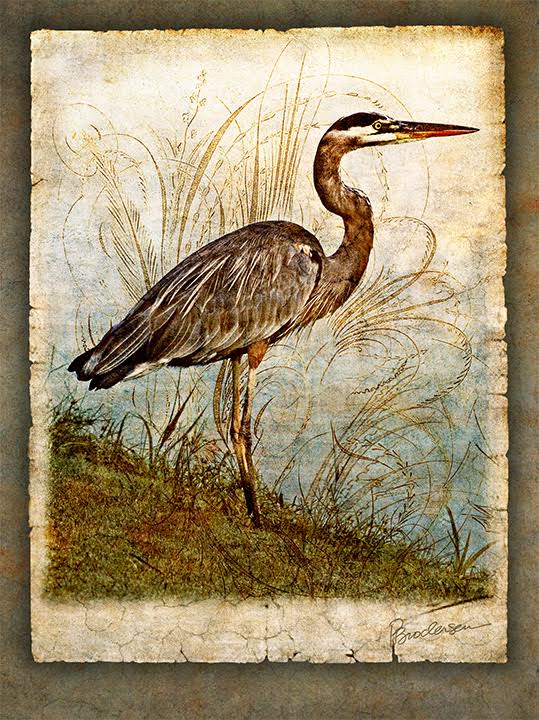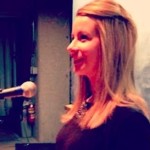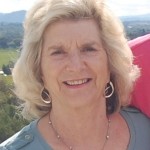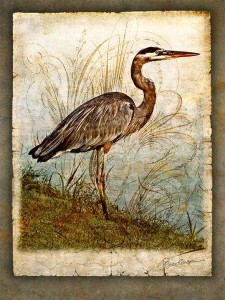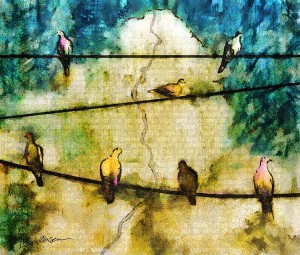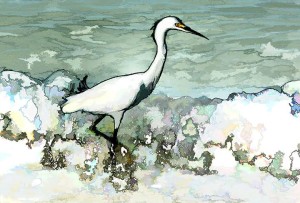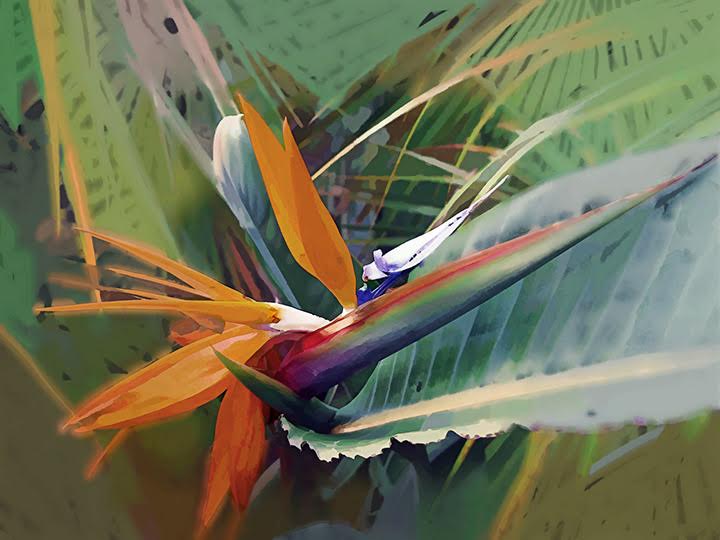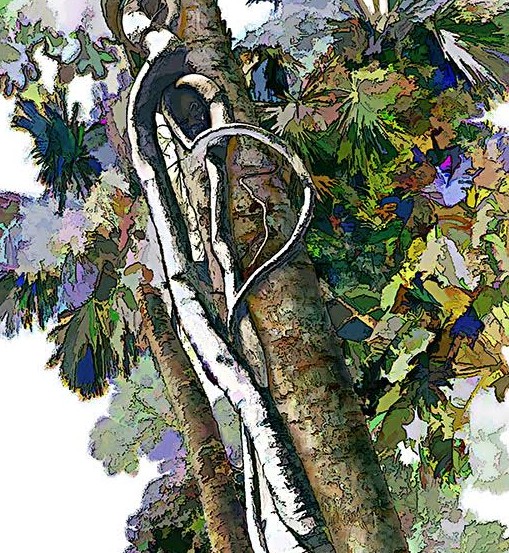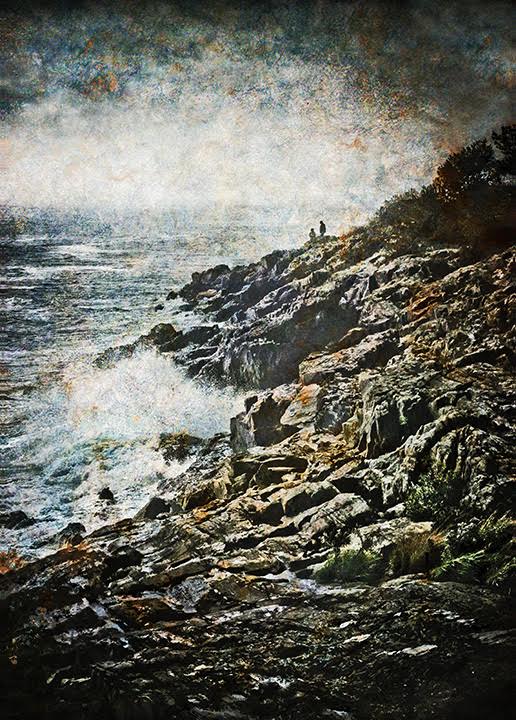Jude Marr: Tina, I have so much enjoyed reading your new chapbook, Once More With Feeling. You pretty much had me at New York—my favorite place to be in the world—but then I became immersed in a new experience of the city, scenes that feel like gifts from a true New Yorker—detailed, complicated and compelling.
These poems feel rooted in the negotiations of childhood, adulthood, and the time between seem to me to negotiate also the neighborhoods of the city. I am reminded of the architectural construction—and anchoring detail—of New York poet, Frank O’Hara. Can you say something about your relationship with, and your work’s connection to, the city?
Tina Cane: I realized after this collection took shape that New York City exerted a presence in my life like that of a parent. I even allude in one poem to “the streets that raised me up.” This revelation shed light on my connection to the city, which I’ve always felt was molecular. Its streets were my playground and, like any child, I learned through play.
I love Frank O’Hara and it gives me joy to have my work mentioned in the same sentence with his. O’Hara captures a different New York from the one I lived, but he paints it with an exuberance and feeling of possibility that I recognize. He enjoyed a glorious New York whose creativity and caprice made making art seem as natural and reflexive as breathing.
JM: Childhood memories, in particular—images and emotions that are, to quote “Wish List,” the collection’s introductory poem, “intricate and entirely plausible”— feel pinned in time and place by details of cultural ephemera, honestly recalled. Do you have a debate with yourself about the use of pop culture references? And, in light of the intricacy and plausibility of the family dynamics you explore, how do you feel when readers conflate poet and speaker?
TC: Conflating the poet and the speaker is a mistake all readers make, including writers. It stems, I think, from a yearning to connect the voice to some “truth.” It’s a function of mistaking “truth” with fact. Once More with Feeling refers to my biography more directly than a lot of my other work, but it’s life shot through the prism of poetry—which means images refracted and distorted by what the poem requires, freed from fact.
I don’t hesitate to use pop culture references because those details paint a period. I mean, “Roland’s Fried Pork Rinds,” has a lot of information built into it, as does Tosca. I am a big fan of the “high” and “low” meeting up in the same place. As in life.
JM: Speaking of your introductory poem, “Wish List,”—I love that you begin with an aspirational ars poetica that becomes also as an index of achievement. The first wish, “To be the Mary J. Blige of poetry,” suggests a showbiz vibe, as does the collection’s title, Once More With Feeling. What part do you feel performance plays in these poems—and why, specifically, Mary J. Blige?
TC: Hahaha…I am pretty skeptical about showbiz. My dad was an actor for a while and he rarely had a kind word for the impulses behind an actor’s need to perform. That rubbed off on me, in that I can be pretty cynical in that regard—like discussions about getting into character and craft. I mean, I hate it when poets do it, too. In fact, poets can be the worst. And yet, here we are…
Once More With Feeling, as a title, tries to capture a return to the past with a (re)newed capacity to see it and feel it for what it was. It’s a little tongue in cheek, but also meant in all earnestness, if that’s possible.
I’ve always admired Mary J.Blige, even in her cheesy periods. Mary is a survivor. She is fierce and talented and unapologetic. It’s rare for me to revere a pop star—except for David Bowie, who I think is a genius—so the reference is also me poking fun at myself. But Mary, I love her.

JM: You make careful use of space in these poems. Can you speak to your decisions about space and form, and how they inform your work?
TC: I abandoned punctuation a long time ago, because I felt marks injected too much static into the line. I use space as punctuation, pause and breath. I like to write landscape-wise, so that I can spread out my lines and accommodate the need for space. I like to give phrases, images and sounds room to exist as units of meaning on their own—unencumbered. At times, I see small group of words in my poems as micro-poems and space allows me to do that.
JM: You live and work in Rhode Island now. How—if at all—has that move affected your view of New York and/or your writing about NYC? Do you think there’s any sense in which you might be “in recovery” from the city—or what it represents?
TC: I’ve never thought of myself as “in recovery” from the city, but absolutely. There is a thread of violence and survival in this book that I am able to see more clearly from here. Moving to Rhode Island was tough in the sense that I had to cut the cord from New York. That distance spurred me to see the city differently. New York, however, has changed greatly from the one portrayed in my book. When I miss New York, I miss the New York of being fourteen years old. On a bike.
Funny, I’ve been reading an interview from 1961 between Studs Terkel—whose book, Working, I have been dipping into over the past couple of months—and James Baldwin whom I’ve always revered. Baldwin speaks of a stint he spent in Switzerland and how that rupture of landscape, and the resulting isolation, released him to write of his childhood in Harlem. Obviously, he is addressing a different set of circumstances and a different era, but time and distance always affect perspective. And for writers, it affects our writing. I imagine, he was “in recovery,” too.


